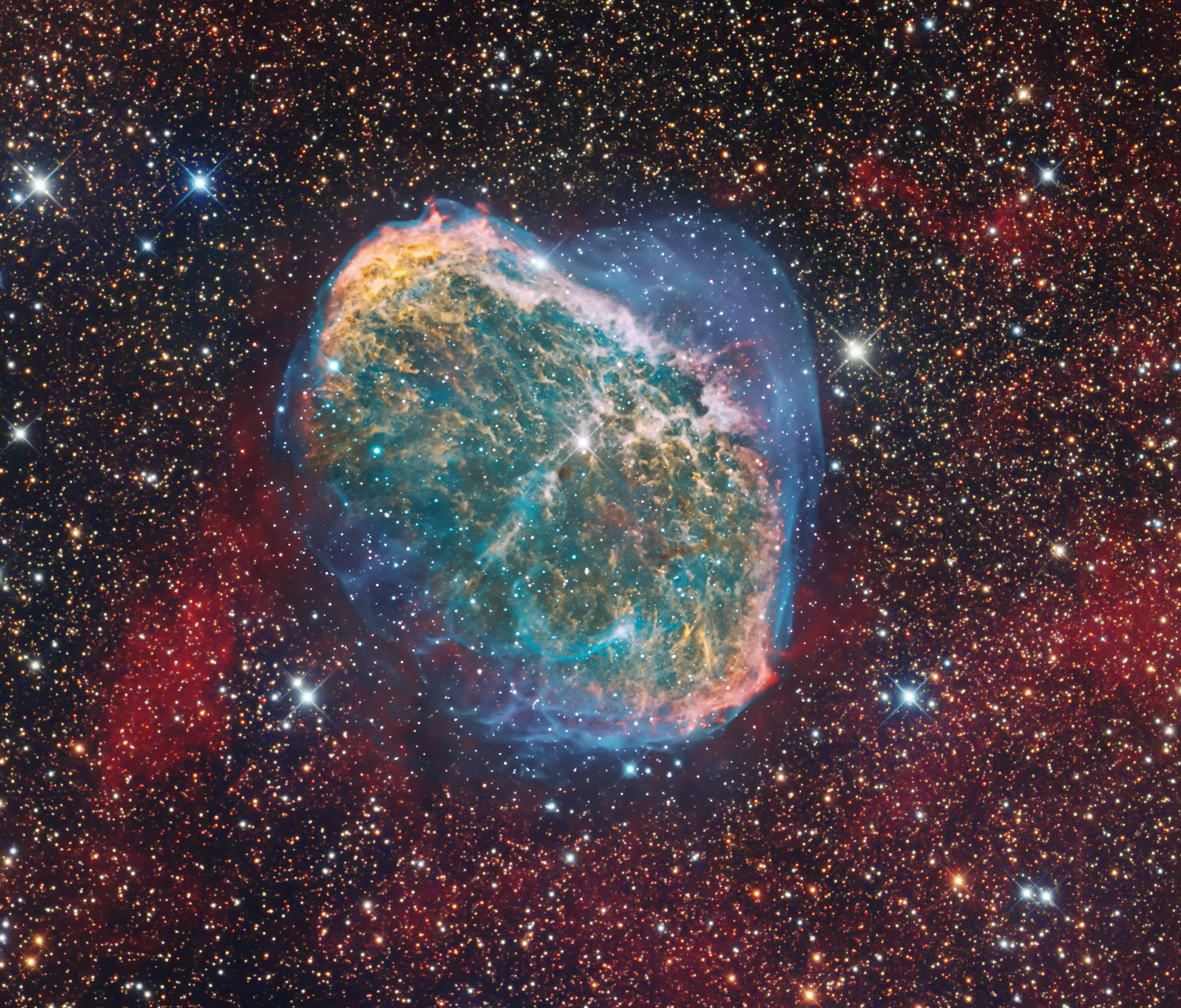
I have so much astrodata to process – what a good problem to have! But what to tackle – (A). LRGB “natural color” data or (B). narrowband data (NB)? I chose (C) – both. By this I mean I chose to process an image for which I have both LRGB and NB data aplenty, namely the Crescent Nebula (NGC6888) in Cygnus. I created the image using the “layer stack- clipping mask” method in Photoshop for the NB data (see above computer screen image) and blended it with “normalizing” LRGB data to render better color tonality than would be possible with NB data alone. My image consists of 11 hours of oxygen III (OIII) data and only 3 hours of hydrogen-alpha (H-a) data, both 1×1 with the RCOS from Chiefland. H-alpha was assigned (color mapped) to red and OIII to both green and blue. Guess there isn’t much sulfur II (SII) in there so I didn’t shoot any. The LRGB exposures totaled a few hours. It’s a huge image so zoom in and see detail.
The Crescent Nebula is one of the most imaged deep sky objects. There have been at least 7 APODs in the last 15 years or so (see links below)! And great scientific articles about the Wolf-Rayet star WR136 in the Crescent abound (a few linked below). One article discusses a huge bubble around the Crescent Nebula (see link below).
http://apod.nasa.gov/apod/ap151204.html — APOD 2015
http://apod.nasa.gov/apod/ap120816.html — APOD 2012
http://apod.nasa.gov/apod/ap090915.html — APOD 2009
http://apod.nasa.gov/apod/ap071111.html — APOD 2007
http://apod.nasa.gov/apod/ap060706.html — APOD 2006
http://apod.nasa.gov/apod/ap030415.html — APOD 2003
http://apod.nasa.gov/apod/ap000802.html — APOD 2000
http://chandra.harvard.edu/photo/2003/ngc6888/ — Great piece about WR136 inside Crescent!
http://articles.adsabs.harvard.edu/cgi-bin/nph-iarticle_query?1995AJ….109.2257M&data_type=PDF_HIGH&whole_paper=YES&type=PRINTER&filetype=.pdf — Crescent “Bubble”
http://arxiv.org/pdf/1006.0625.pdf — article about searching for ejecta nebulae around WR stars!

